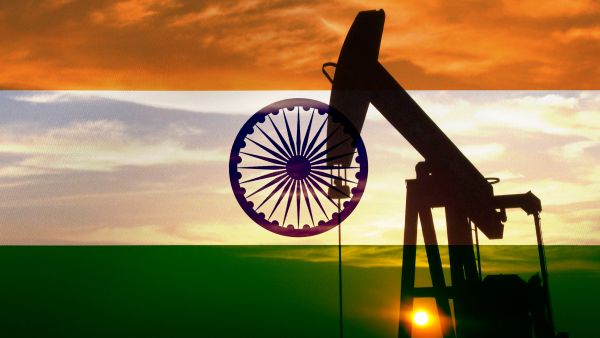Using its position as Asia's third-largest natural gas buyer, India has asked Qatar to re-examine the current pricing mechanism of its long-term contract of liquefied natural gas (LNG), in order to reflect falling rates in the markets.
With Israel's emerging role as a natural gas importer in the Middle East, signing two major deals with Jordan and Egypt, more questions are raised regarding its ambitions to expand its natural gas client base to Asia, and whether it will be competing with LNG exporters in the GCC.
India needs to re-examine long-term gas pricing with Qatar: Oil Minister #ETIndustryNews https://t.co/KMKKHO0s1X
— ET Industry News (@ETIndustryNews) January 27, 2020
During a meeting with oil company officials in New Delhi, India’s Oil Minister Dharmendra Pradhan announced his government's desire to renegotiate its long-term contract with Qatar, citing the decline of spot prices being a reason for his request. According to a long-term contract signed in 1999, India imports 8.5 million tonnes of liquefied natural gas (LNG) every year.
The drop of LNG prices in January is urging the fifth largest economy in the world to ask its Qatari partners for a re-examination of prices. The current long-term LNG agreement with Qatar costs India USD 8.5-9 per million British thermal unit, while the same gas is available in the spot market for less than half the price.
"All energy producers have to revisit this old practice (of pricing LNG linked to oil) and come to new methodology reflecting demand-supply," the Indian Minister of Oil said during the meeting in New Delhi.
In 2015, India successfully managed to get Qatar to discuss its contract price reducing it to half of what it was paying earlier.
India wants to delink Qatar gas supply deals from crude; Qatar says no https://t.co/pY02ryYSQG
— JEFAIN ALHAJRI (@JRJ_ALHAJRI) January 27, 2020
In the Middle East, Qatar has the third-largest oil reserves in the world with about 12.5% following Russia and Iran which both own more than 40% of the world's reserves.
While the UAE, Saudi Arabia, and Iraq have fewer amounts of natural gas and are focusing more on their oil production, Israel seems to be bracing for a promising future in Asia, where it's trying to stretch its markets.
Earlier this year, Israel has started exporting natural gas from its largest offshore natural gas field Leviathan to Jordan and Egypt. Jordan's government explained that its efforts to import Israeli gas are expected to save more than USD 900 million annually of the country’s energy bill.
Jordan is set to receive natural gas from Israel by the end of 2019 https://t.co/XBXLuSDX3M pic.twitter.com/liYt3YLRkv
— Bloomberg (@business) July 4, 2018
Besides the strong relationship between the Indian and the Israeli governments, most notably in the close friendship between India's Narendra Modi and Israel's Benjamin Netanyahu, the two countries may be able to design an LNG deal that appeals to India, especially that Israeli officials have expressed the need to penetrate the Asian markets, promoting their newly discovered gas.
In a blog post published by the Times of Israel in December 2018, Deputy Director-General for Asia and the Pacific at the Ministry of Foreign Affairs Gilad Cohen detailed reasons his government should be more interested in selling its natural gas production to eastern markets than to Europe, as growing Asian economies such as India, China, Japan, and Korea are amongst the world's largest energy importers that are working to diversify their sources of natural gas.
According to a report posted by Livemint, an Indian financial newspaper, Indian energy experts and analysts have been encouraging their government to look into new options when it comes to natural gas suppliers including Israel, Mozambique, and Tanzania, amid the country's efforts to increase gas shares of its primary energy mix, which only comprises about 6%.







